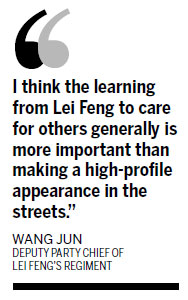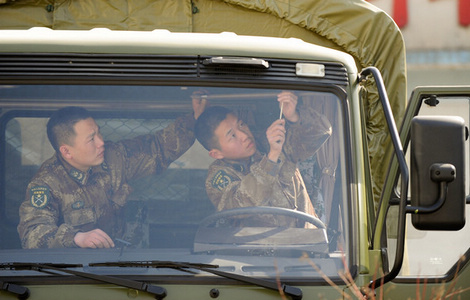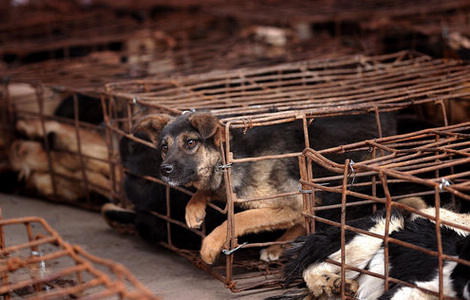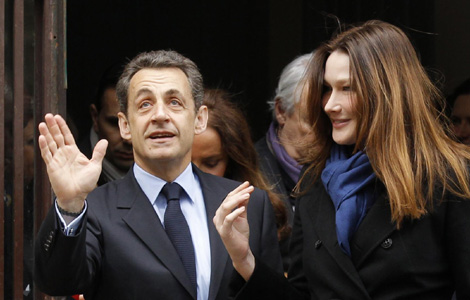 |
|
|
|
|||||||||||
In my childhood, Lei Feng was held up as a model of morality and symbol of ultimate altruism. But growing up in a society that has quickly become more materialistic and being immersed in a busy daily life and work, the image of Lei Feng has faded, and my memories become vague.
But my trip to the cradle of "Lei Feng Spirit" brought it all back to life and meaning.
The presence of Lei Feng can be felt the moment the train arrives at Fushun, a city 800 kilometers northeast of Beijing in Liaoning province.
|
 |
As I dragged my heavy luggage, a young soldier approached and helped me carry it to the bus taking us to the regiment's barracks, where Lei Feng served half a century ago.
Fushun seems to be related with Lei Feng in every way. Posters of him can be seen on buildings. Buses and schools are named after him.
I shared a dormitory with four soldiers. As expected, the room was immaculately tidy. Even the handles of the four stainless steel cups pointed to the same direction.
My concerns about fitting in neatly were quickly allayed, when my enthusiastic roommates offered to keep me in line.
The entire camp was equally clean and tidy. Even when I spotted a stray twig from a broom on the ground, it was quickly picked up and put into the trash can by a passing soldier.
I was impressed at mealtimes, too. They have three buffet-style meals a day, where the lower ranks have a choice of six hot dishes. Afterward, I was surprised to find that most returned plates that were so clean, it was hard to find a grain of rice left.
Apart from viewing military training, my four-day visit involved paying tribute at Lei Feng's tomb, visiting two Lei Feng memorial halls, and an orphanage, where the regiment regularly provides voluntary help.
I did not see soldiers go out and help the elderly and infirm to cross busy streets, or give money to beggars, as seen in early films about Lei Feng.
"We have to focus on military training as we are soldiers, so in reality we cannot go out and help others every day," said Wang Jun, deputy Party chief of the regiment.
"I think the learning from Lei Feng to care for others generally is more important than making a high-profile appearance in the streets."
In this sense, I was surprised to find the guys in stiff military uniform flexible-minded enough to have developed new forms of promoting the spirit of Lei Feng.
They are cooperating with companies to help the unemployed residents to find work, and setting up a Lei Feng memorial site online to inform netizens.
In today's diverse society, where individual interests are given more emphasis, the image of Lei Feng seems to have lost its appeal to some people, and is even met with cynicism. But his regiment still adheres firmly to his ethos.
Qiao Anshan, who was Lei Feng's closest colleague, spends half the year touring the country giving talks on Lei Feng.
"I think most people still admire Lei Feng today and welcome hearing about him," Qiao said. "A lot of the media tend to report only the negative, making society seem to be morally deteriorating.
"Lei Feng's legacy is essentially one of selflessness and universal love. I think all the world should learn from him."
From cradle to grave
Born into a poor farmer's family in 1940, Lei Feng was orphaned at an early age.
After the People's Republic of China was founded in 1949, he was able to go to school and later joined the army. His good behavior and absolute readiness to help others during army service in Fushun won him national recognition.
After he died in an accident in 1962, Chairman Mao Zedong called the nation to learn from Lei Feng, and he has been a household name since.

|

|

|

|

|

|